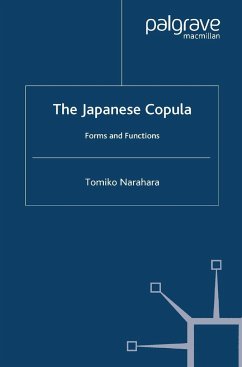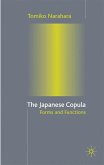In this innovative study, Professor Narahara offers a multi-disciplinary description of the Japanese copula, revealing it to be at the interface of morphology, syntax, semantics and pragmatics. Most striking is her discovery of the copula's function to express the speaker's knowledge or ignorance about the proposition of the sentence. She provides a new morphological feature analysis to derive this modal function and further proposes a series of unified accounts for a wide range of discourse phenomena.
Bitte wählen Sie Ihr Anliegen aus.
Rechnungen
Retourenschein anfordern
Bestellstatus
Storno









